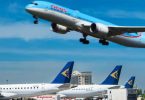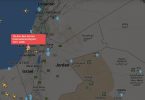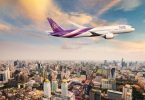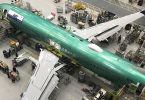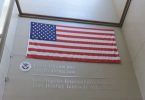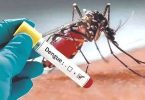A year ago, most experts were predicting that 2008 would be a strong year for the airline industry, with high hopes for growth and billions in profits.
Those expectations were shattered by a record-breaking spike in oil prices, followed by a plunge in demand for travel as the economy took a nose dive. The year’s events were a stark reminder that predictions can quickly go awry in the tumultuous airline business.
So many are being cautious about forecasting 2009. The biggest factors that will affect airline passengers, employees and investors are the economy and price of oil, which remain question marks.
“It’s no secret that the big question is what’s going to happen with the economy,” said Dan Garton, executive vice president of marketing for American Airlines, based in Fort Worth. “Nobody knows for sure, and the industry’s health is very closely tied to the economy.”
Still, many analysts are predicting the major airlines to turn a small profit despite the downturn, although projections have been slashed in recent months. The airlines are likely to continue cutting their passenger capacity, which could keep ticket prices stable. Travelers can expect to keep paying fees on items like checked bags and may have to start paying for some new services as well.
American hopes to receive approval for its alliance with British Airways, which would allow it to coordinate with that airline on operations, scheduling and marketing for trans-Atlantic flights.
Dallas-based Southwest Airlines, meanwhile, plans to begin flying into New York City for the first time and will work to build the first North American low-fare alliance with the Canadian carrier WestJet and Mexican airline Volaris.
“I think 2009 is going to be a very, very interesting year for the airlines,” said travel analyst Terry Trippler of Tripplersview.com.
Fees ‘here to stay’
Travelers taking to the skies in 2009 can probably count on one thing — they’ll have to keep paying those fees, such as checked-baggage fees, that airlines began charging in 2008.
Although airlines cited the high price of jet fuel when they implemented the fees this year, the charges are unlikely to disappear, even though oil prices have dropped.
“I really don’t think we’ll see those fees go away,” Trippler said. “They’re here to stay.”
Garton said most customers have adjusted to the extra charges.
“The initial response was negative, but in reality, it’s giving customers more choices to pay for what they really want to consume,” he said. And, he added, “It’s been positive in terms of revenue, clearly.”
Trippler said it’s unlikely that many new fees will be added next year.
“There really isn’t much more for them to start charging for, except maybe beverages,” Trippler said. He also doesn’t expect airlines to raise fees that are already on the books.
But the airline consultant Stuart Klaskin of Klaskin, Kushner & Co. disagrees.
“I don’t think they’ve even begun to plumb the depths of the passenger fees,” he said. More airlines could begin charging for window or aisle seats, he said, or early boarding. They can also put more charges on frequent-flier program transactions.
Airlines may also begin offering new services for a fee. Several carriers, including Delta Air Lines, are planning to roll out in-flight wireless Internet access, for example, during the year.
And United Airlines recently began offering a $25 pass that allows passengers to use shorter security and ticket lines normally reserved for elite and first-class travelers.
“We’ll probably see more of these new products that the airlines will offer for a price,” Trippler said.Klaskin predicts that airlines may also try selling more expensive fares that include several services, such as checked baggage or preferred seating.
“It’s like the value meal,” he said. “Once people get irked enough paying all these fees, they may be willing to pay more for a ticket that includes them upfront.”
The lone holdout, Southwest Airlines, is likely to continue to refrain from charging most fees. The airline has made its lack of fees a major selling point in recent advertising.
Garton said it’s “hard to know” whether American has lost many customers to Southwest over the fees.
“Clearly there’s been some,” he said, but other factors such as price, frequency and schedule are factors.
Prices stable
The future is more cloudy when it comes to ticket prices. Most analysts expect demand to decline as the economy shrinks, which usually means more fare sales and cheaper tickets.
UBS recently conducted a survey of corporate travel managers, which found that 75 percent plan to reduce their company’s travel spending in 2009.
Most of those cuts are expected in domestic markets, although spending on travel to Europe is likely to be down as well.
“The results are clearly bearish for demand,” said UBS airline analyst Kevin Crissey, but he added that they are “not out of line with economic news.”
Fares may remain stable if the airlines continue cutting passenger capacity, Trippler said. American, for example, cut the total number of seats for sale by 8 percent this year and plans to cut an additional 6 percent next year.
Gerard Arpey, American’s chief executive, said recently that it could cut capacity further next year if warranted.
“The airlines have been extremely disciplined when it comes to capacity,” Klaskin said. “I think we’ll see more of that next year.”
Economy crucial
Garton said the challenge is in keeping total passenger capacity consistent with the economy.
“Traditionally, we model our revenues by looking at industry capacity plus or minus the change in” the economy, he said. “When those two get out of sync, that’s when you’ve got a problem.”
Most analysts say, at least right now, that the airlines are up to the challenge. Despite the slowdown, analysts are predicting a profitable year — although predictions are far less rosy today than they were a few months ago.
The International Air Transport Association expects a $300 million profit for North American carriers.
“North America will be the only region in the black, but the expected profit is less than 1 percent of their revenue,” said Giovanni Bisignani, the group’s director general and chief executive. “2009 will be another tough year for everyone.”
Analysts expect AMR Corp., the parent of American Airlines, to post a profit of $1.74 per share in 2009, excluding special gains and charges. Southwest is also expected to make money, with analysts predicting a 59 cent-per-share profit.
Both airlines plan some big moves to help boost revenue during the year. American executives hope to win approval for an alliance with British Airways.
It’s a partnership that both airlines have craved for years but hasn’t been allowed by government regulators because of concerns that the airlines would dominate London’s Heathrow Airport, Europe’s busiest hub.
A new aviation treaty between the United States and the European Union has opened Heathrow to more competition. That, Garton said, makes it more likely that the airlines will be allowed to work together.
“We think we have a very strong argument,” he said.
Southwest, meanwhile, plans to move into two unlikely markets in 2009. Besides New York, Southwest will enter Minneapolis.
Both are major business destinations, which could attract more corporate dollars to Southwest.
And Southwest’s construction of an alliance with WestJet and Volaris links three low-fare carriers with similar business models.
The alliance would allow Southwest to book fares to a wide variety of cities beyond the U.S. border.
“I think Southwest is going to be the airline to watch in 2009,” Klaskin said. “They have some very big plans.”



